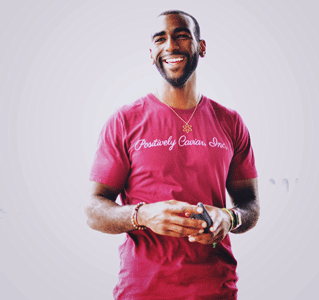There isn’t a single human being alive who doesn’t want to be happy. Humans are constantly chasing this emotional state, and if true, then why do so many of us have a hard time attaining it? The truth is, the brain was not designed to make us feel happy all the time it was designed for survival. Scientists have been studying if it’s possible to significantly change the human brain’s way of thinking.
Psychologists believe that the human brain has evolved over thousands of years to focus on the negative side of life. Researchers explain that humans would not have survived the Stone Age as species if we didn’t have the capacity to anticipate a saber-tooth tiger. In this sense, this type of emotional state was a survival mechanism. In this day and age, when we no longer have to contend with this constant type of danger— how do we transform our brain from the primitive neurological structure into a mechanism that allows us to find peace and happiness throughout life?
The brain behaves like a muscle, and just like every other muscle, it must be trained. It must be taught how to focus on the positive experiences in our lives rather than the negative or mundane ones. You must make a conscious habit to influence your emotional state to being happy. This all goes back to the famous Earl Nightingale quote, “You become what you think about.” If you want to battle sadness and anxiety, you should focus your intentions on positive thoughts and gratefulness.
As a child your brain’s neural pathways are developed to form the person you are today. How you think, how you manage your emotions and the decisions you make are encoded in the communication pathways in your brain.
Scientists believe that the brain’s neural pathways are completely formed by the time we become adults. However, new scientific developments suggest that our brain is much more dynamic and can be molded throughout its lifetime. This is called neuroplasticity. We do indeed have the ability to significantly change who we are and how we think.
Change happens through repetition and consistency. This may happen in our brain when new habits are introduced and eventually established. The more you consistently focus on thoughts of gratefulness and happiness, the more familiar it will become. This may be difficult at first but with mindfulness and consistency, it can be achieved.
In world-renowned author Deepak Chopra’s book, “Super Genes,” he explains, “Developing new pathways in the brain is like digging a new river channel. Water will keep running down the old channel as long as it’s deeper than the new one. By repeating the change you want to attain, you will be digging a shallow channel at first, but repetition deepens it.”
How do you change your mindset from seeing the glass half empty to half full? Here is one technique: At the end of the day think about three good things that went well for you that day. They can be small or big— just pick three. Write them down right before you go to sleep each night. Research suggests that this exercise improves wellbeing over the long term and helps instill a habit of happiness.
By consciously reminding yourself about the things you have to be thankful for, and the good experiences throughout your life, you will start looking at life more positively. Through conscious repetition, you will by definition, start actively “building” new neural pathways that may change how your brain naturally thinks about your life.
Once this becomes a habit, you will be amazed just how much you have overlooked or taken for granted in your life.
Positively Caviar, Inc. is a non-profit organization focused on intensifying the message of positivity and optimism in our digitally centric lives in the Mid-Atlantic region. Once a month, a member of The Nucleus Team will write a column that focuses on mental and physical health tips, scientific studies, nutrition facts and stories that are positive in nature to support a purposeful and positive lifestyle. To learn more about our organization, the nucleus team or how you join our positive movement, visit: staybasedandpositive.com
